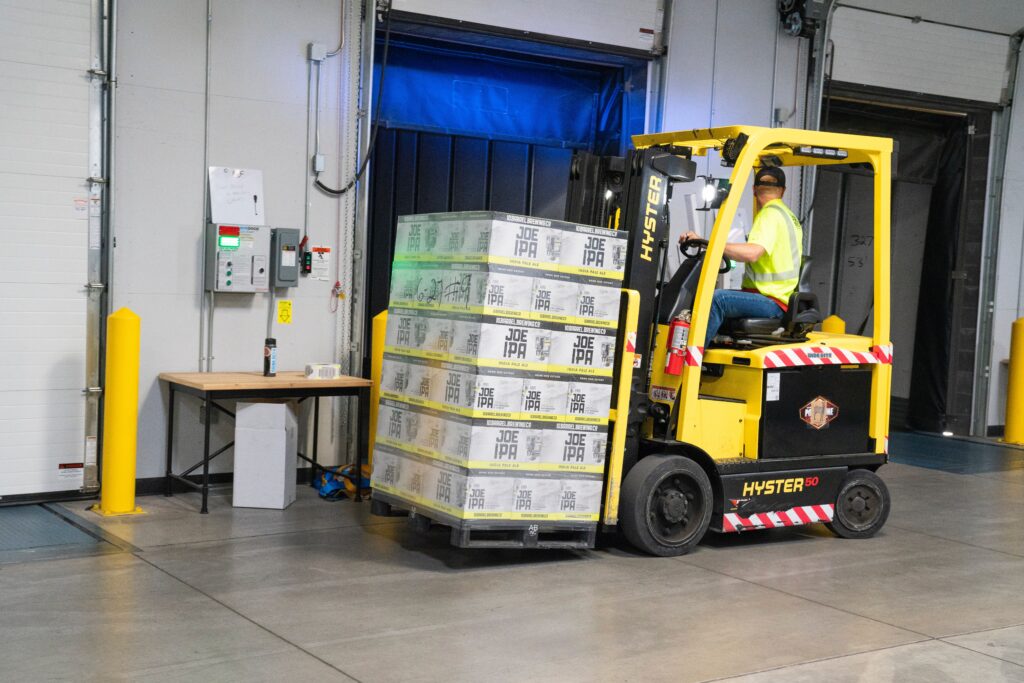You were caught in the all-consuming trap of active addiction and desperate for the next hit. So, you stole money or property to get drugs. Or, you were arrested for drug possession or sales. It may have even be a prostitution charge… anything to get money for what your brain demanded. Whatever the crime committed, you were convicted. You may have even served time in jail.
Now, though, you are clean and sober and ready to begin again.
Transitioning to a new life can be challenging. When people take those first few steps to re-establish themselves in the real world, they are more likely to relapse and overdose, commit suicide or homicide, and even succumb to cardiovascular disease. (Couloute and Kopf)
Why? Because it’s not easy.
You need to know, though, that it’s possible, it’s doable, and thousands of others have already done what you are attempting to do.

Sober Living is the First Step
Living in a sober home gives you several advantages.
First, it provides a place to live – at a vastly reduced cost than what you would pay normally.
For example, the average rent for an apartment in Port St. Lucie, FL, is $1,475 as of April 2020. Even a one-bedroom will set you back $1,232 per month, on average. (Rent Jungle)
Sober living can be less than half of that cost. Some sober living homes even offer budget-friendly weekly payments.
RELATED: How much does sober living cost?
Not only that, but sober living facilities come with the built-in support of your fellow residents.
Chances are, a good percentage of your housemates will be not be new to this process; they’ve been there, done that. They can point you to local 12-step meetings and possibly even help you with transportation.
Also, once you locate a home base, you can find jobs that are convenient to it. You’ll also have an address to list on your application.

Jobs for Felons: The Good News
“Thirty years ago this month, Roberts was coming out of the Montgomery County Jail – again. His offenses were always drug related… Roberts was able to get treatment for his addiction but also had a felony on his record for years. ‘A lot of people were incarcerated and got a lot of strikes,’ he said. ‘I’m glad that at some point the community became educated and began to look at addiction like the disease that it is.’”
– William Roberts II, 30 years sober, Supervisor of Addiction Services at Public Health Dayton & Montgomery County and Pastor of Bethel AME Church in Middletown (Wedell, From addicted dropout and inmate to Master’s degrees: How 2 Dayton men turned their lives around)
It may seem an impossible task to get a job with a felony on your record. It is most definitely not. In fact, nearly one in three adults in the U.S. have a criminal record. (Hentze Barriers to Work: People With Criminal Records) A lot of people just like you have found gainful employment.
Keep these three things in mind as you search for a job:
1) Time is your friend. The longer you are out of prison, the more likely you are to be employed. The first two years out are the most challenging, when nearly a third of those with a felony are unemployed at any given time. However, that means that the majority – two-thirds – are able to find a job in those first two years. At the two-year mark, this number climbs to 79% of former felons employed, and at four years out, nearly nine out of 10 felons (86%) are employed. (Couloute and Kopf)
2) Many employers are open to hiring those with a felony on their record. Most businesses (63%) have hired someone with a felony, according to a 2009 survey (The IPS Employment Center at The Rockville Institute, Employer Surveys Regarding Employment of People with Criminal Histories). In a more recent survey released in 2018, that percentage was slightly higher. Nearly two-thirds (66%) of human resources workers said their companies had hired someone with a criminal record. Even better, nearly nine out of ten human resource professionals (84%) and seven out of ten (74%) of managers stated that they were “open or willing” to bring on board those with a prior criminal record.
Half of managers surveyed said that they wanted to hire the best candidate, whether they came with a record or not. Nearly half, or 44%, said that “making the community a better place” and “giving individuals a second chance” are important factors in the consideration process. (Charles Koch Institute)
3) Your employer will benefit from hiring you. Remember that you have a lot to offer. Over 80% of managers surveyed said that those who have a criminal record bring just as much – or even greater – value to the organization. (Gelber).
Research backs this up.
Take, for instance, one study that looked at 1.3 million people with criminal records who had enlisted in the U.S. military. Those who had a record were promoted at a faster rate (and to higher ranks) than those without. (Couloute and Kopf)
Another study conducted in a call center setting found that those with a record stayed on the job longer. Finally, a Johns Hopkins Hospital study also found that employees with criminal records had a lower turnover rate. (Couloute and Kopf)
What these studies point to is that you may be more dedicated, more loyal, and a longer-term employee – specifically because of your past. Remember that you bring just as much, if not more value, to any employer willing to give you the chance.
The key is to successfully navigate this process with patience and perseverance, knowing that your situation will improve, as long as you put in the work.

8 Tips for Getting a Job With a Felony on Your Record
The most common type of felony that employers reported hiring someone with were drug-related felonies (The IPS Employment Center)
Therefore, if your felony is purely drug-related (for example, possession of illicit substance, possession of drug equipment, etc.) you will probably face the least amount of resistance to your job-seeking efforts.
Bottom line, though, is that you can’t chance the past. No matter what the felony on your record, there are many things you can do to increase your chance of being hired.
Here are the reasons employers mentioned most often when asked why they hired someone with a felony (The IPS Employment Center):
- Qualifications – The person was qualified to do the job.
- Presentation – In an interview, the person presented themselves well
- Connection – Someone the employer knew could “vouch for” the applicant.
- Belief – Employers believed that the person had changed their ways.
With that in mind, here are eight tips on how to portray these qualities to an employer and get a job with a felony record.
1. Consider Possible Jobs Based on the Type of Conviction You Have
To over half of employers, the type of conviction you have will matter, especially if it’s relevant to the job. Employers say they are most concerned about financial and theft crimes. Next comes violent crimes, sex crimes and crimes against children (The IPS Employment Center at The Rockville Institute, Employer Surveys Regarding Employment of People with Criminal Histories).15
Just as those convicted for crimes against children would not be considered for a job working with children, those with a theft or burglary charge will likely not be considered for a job handling money… especially if the conviction wasn’t that long ago. Similarly, if you have a drunk driving conviction, you probably won’t be hired to be a delivery driver.
But that doesn’t mean you give up entirely.
While you may not be hired as a cashier, for example, this doesn’t stop you from starting as a cook, a driver, a warehouse worker, a welder or delivery person.
Start where you can start, do a good job, and build from there.
2. Get Qualified
You should now have an idea of possible occupations. Now, you should find out if there is either a license or certification you can obtain or a course you can take that to better qualify you for the job.
Why should you bother? Because a good percentage of employers (42%) surveyed reported hiring a person with a felony because of their qualifications.
Whether it be experience, training or skills, they will all move you closer to being employed. Listen to what these employers had to say about it (The IPS Employment Center):
“He had the skills that were necessary to do the job.”
“I hired these two because one knew how to weld and the other had 10 years machining experience.”
If you have a way of relating a prior position or anything else you’ve done to the job you are applying for, that will increase your chances of being hired. You can also volunteer in order to get experience doing what you are looking to do. Or, follow these tips to get a job that will allow you to work on obtaining certification and training for another field during your off hours.
If you are blessed to have family members willing to help you get qualified for a position you are interested in, (with a promise to pay them back, of course), it can really pay off. The average wage for a welder in the U.S., for example, is $17.88 an hour, or over $37,000 a year (Indeed).
3. Be Willing to Start at the Bottom
You have dreams; everyone does. But in the meantime, you need to pay your bills. Right now, you just need to get your foot in the door somewhere. You never know… that door could lead to bigger opportunities down the road.
You may start as a cook or a waiter, and work your way up to manager and, eventually, own your own restaurant. Or, after years of showing consistency, you decide to pivot and get training for a trade.
Remember, it’s not about where you begin. It’s about where you’re going.
4. Get A Referral from Someone Who Works Where You Want to Work
A 2016 study showed that 72% of new jobs go to internal hires and employee referrals (Severt).
What does this mean for you? Employers like to hire known quantities.
If a current employee vouches for you, hiring managers feel as if they can more accurately predict that you will be successful in the position.
Eighteen percent of surveyed employers indicated that they hired someone with a criminal record because they had a connection to the person that referred them. Their comments included (The IPS Employment Center):
“The person was a good interviewee and had good experience. He also came highly recommended by one of my mechanics.”
“I knew his parole officer and talked to him personally. The person did his time, paid his dues and was upfront—[they] talked about it.”
“The person seemed like a good person who sincerely wanted to work. He had an employment specialist working with him with whom I had a prior relationship. I have hired people with felony backgrounds before, but it helped having someone who knew the person and was willing to back him.”
5. Speak to the Hiring Manager Directly
Employees not connected to the hiring process can be more concerned about other things (such as doing their own jobs). Thus, they may not give you the time and attention you deserve as a prospective fellow co-worker.
Human resources bears some responsibility for filling open positions, but they also have other duties. They administer benefit programs, getting involved in employee/management disputes, etc.
However, it is the hiring manager who is the most concerned about hiring someone, as soon as possible, who can get the job done – and done well. It directly impacts their ability to do their jobs. They need good, consistently performing employees in order to achieve the objectives they are tasked with.
Perhaps the best reason to ask for the hiring manager, though, is because that’s what they’ve said to do (The IPS Employment Center).
You show initiative when you bypass traditional methods and go straight to the person in charge. Hiring managers can draw the conclusion that, if you’re going to do whatever it takes to get the job, you’ll do whatever it takes to keep it, also.
6. Present Yourself Well
Nearly one of our five (22%) surveyed employers mentioned the applicant’s presentation as being a factor in deciding to employ someone with a felony.
Of course, you need to dress appropriately for your interview.
Employers are looking at not just your appearance though. They are paying attention to how you come across during the interview.
Therefore, show enthusiasm for the job to which you are applying. Hone your interview skills so that you have answers ready for commonly asked questions, such as your strengths, weaknesses, work history, and more. You may even decide to practice, whether it’s on your own or with a friend, so that these answers flow smoothly during the moment of truth.
It’s not over when the interview is over, either. You need good follow-up skills as well.
Get the contact information for the person interviewing you and send a thank you, preferably through email, with 24 hours of the interview. In it, express enthusiasm for the position again. State why, based on what happened in the interview, you think you are the best candidate for the job.
You call also follow up to inquire about the status of the position after a reasonable period of time (if they say they will call you about the job on a particular day, wait until a day or two after that to follow up).
Pay attention here, this is imperative: You need to respond right away to any attempts to an employer trying to contact you. Answer your phone. If you can’t, call them back immediately.
If you have any doubt about this, here’s what one surveyed employer said (The IPS Employment Center):
“Initially, I didn’t know [whether to hire him]. But the resume looked good and the person demonstrated that he was willing to do whatever was needed to get hired by showing prompt phone call and email responses, was more than ready for interviews and showed enthusiasm for the job during the interview.”
7. Be Honest
Honesty is the best policy. Always be honest and up-front about any past felonies.
Not only will it come out anyway – up to 92% of employers do criminal background checks on candidates for at least some positions (Nolo) – but employers cite demonstrating sincerity and honest when explaining the record as a reason they ultimately hired the person (The IPS Employment Center). Said one employer:
“The person was open and honest about her past. She was confident in her ability to do the job and willing to prove herself.”
8. Take Responsibility
Taking responsibility for your past means not blaming other people, circumstances, or anything else for what has occurred. This is something that employers respond positively to. They would also like to hear how and why you’ve changed. For example:
“Getting arrested is an experience I am grateful for, as it has changed my life. I have been sober/clean ever since. My life is so much better now, and I want to keep it that way. I am confident that I can do this job, and, if you give me a second chance at keeping this life I love, I will work harder than you can imagine. You will never regret it.”
Taking responsibility for your actions and explaining how you’ve changed since the conviction were two pieces of advice given by surveyed employers. Here’s what they had to say (The IPS Employment Center):
“This person was very convincing when he told me he had lost most of what he really cared about because of some very poor choices. He told me he needed to work so he could feel normal again. He asked me to take a chance on him.”
“[The applicant had] talented artwork and [was] honest about [their] record and time spent in prison. Everyone makes mistakes.” [The] owner indicated that he himself had a felony conviction and was given another chance to make things right.
“I was sure the person had changed his life for the better. He took responsibility for what he had done and was adamant about wanting to have a chance to prove himself.”
Consistency is the Key to Your Future
As you can see, employers are ready, willing and able to help you on your quest to find jobs for felons. Do your part by considering what jobs would be a good fit (given the type of felony you have) and get qualified for them if possible. Try those you know to see if they can vouch for you. Remember to present yourself well, be honest, and follow up. If you take all of these pointers to heart, it’s just a matter of time until you are earning that first paycheck.
And once you are there, focus on developing a consistent employment history.
Staying at a job for less than a year and a quarter (or 15 months) made applicants 43% “less hireable” in the eyes of hiring managers in a Talentworks survey. The interview callback rate dropped from 13% to less than 8% (Dominguez, 10 Reasons Why It’s Hard to Get a Job Today). Consistent work history was also the “leading factor” in the willingness to hire workers with records for managers and HR professionals (Society for Human Resource Management).
The best way to ensure that you keep a job is to perform as though you are always proving yourself to your employer. Show up early, be willing to stay late, and work hard in between. Demonstrate a good work ethic, be honest and reliable.
As you build that work history, showing consistency in maintaining employment, it will get easier to get the next job… and the next and the next. One day, you’ll find yourself in a much better financial position and with a job (or your own business) that you love.
RELATED: The importance of aftercare
RELATED: Six tips for early recovery
SOURCES
Charles Koch Institute. “SHRM and Charles Koch Institute Second Chances Survey.” Charles Koch Institute, 17 May 2018, www.charleskochinstitute.org/news/shrm-second-chances-survey/.
Couloute, Lucius, and Dan Kopf. “Out of Prison & Out of Work.” Out of Prison & Out of Work Prison Policy Initiative, July 2018, www.prisonpolicy.org/reports/outofwork.html.
Dominguez, Catherine. “10 Reasons Why It’s Hard to Get a Job Today.” TalentWorks, 31 Oct. 2018, talent.works/2018/10/30/10-reasons-why-its-hard-to-get-a-job-today/.
Gelber, Mack. “A Criminal Record May Not Be the Obstacle to Employment That It Once Was.” Monster Career Advice, Monster.com, www.monster.com/career-advice/article/ex-felon-job-seekers-business-pledge.
Hentze, Iris. “Barriers to Work: People With Criminal Records.” Barriers to Work: People with Criminal Records, National Conference of State Legislators, 17 July 2018, www.ncsl.org/research/labor-and-employment/barriers-to-work-individuals-with-criminal-records.aspx.
Indeed. How Much Does A Welder Make In United States?, Indeed, www.indeed.com/career/welder/salaries.
The IPS Employment Center. Employer Surveys Regarding Employment of People with Criminal Histories. The IPS Employment Center at The Rockville Institute, 2017, Employer Surveys Regarding Employment of People with Criminal Histories, ipsworks.org/wp-content/uploads/2017/08/employer-survey-legal-history.pdf.
Nolo. “Florida Laws on Employer Use of Arrest and Conviction Records.” Www.nolo.com, Nolo, 31 Oct. 2012, www.nolo.com/legal-encyclopedia/florida-laws-employer-use-arrest-conviction-records.html.
Rent Jungle. “FIND APARTMENTS IN YOUR AREA.” Rent Jungle: Apartment Search, 2020, www.rentjungle.com/average-rent-in-port-st-lucie-rent-trends/.
Severt, Natalie. “No Interviews? Stop Applying for Jobs and Speak to the Hiring Manager.” The Guardian, Guardian News and Media, 21 Dec. 2016, www.theguardian.com/careers/2016/dec/21/no-interviews-stop-applying-for-jobs-and-speak-to-the-hiring-manager.
Society for Human Resource Management. “Workers with Criminal Records.” SHRM, Society for Human Resource Management , 16 Aug. 2019, www.shrm.org/hr-today/trends-and-forecasting/research-and-surveys/pages/second-chances.aspx.
Wedell, Katie. “From Addicted Dropout and Inmate to Master’s Degrees: How 2 Dayton Men Turned Their Lives Around.” Dayton Daily News, Daytondailynews.com, 19 Mar. 2019, www.daytondailynews.com/news/local/from-addicted-dropout-and-inmate-masters-degrees-how-dayton-men-turned-their-lives-around/7bYFxxq1y4fHiq1X1UFQIL/.

